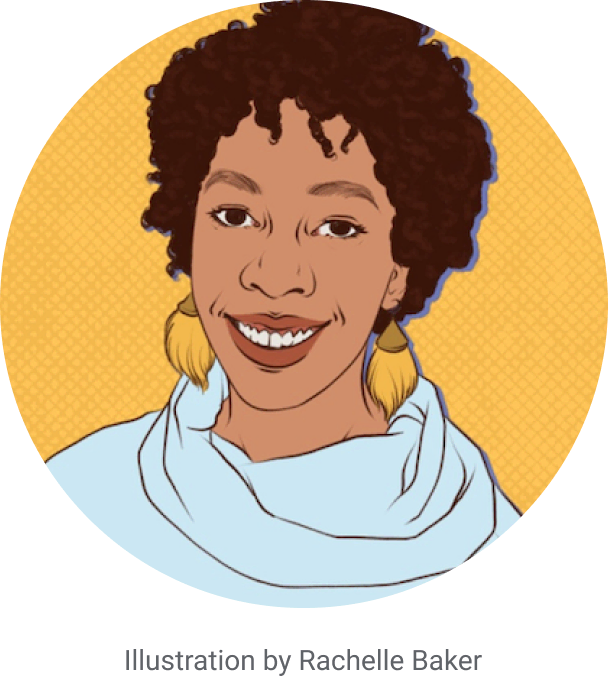
Lorrie Guess
Data Strategist
"That’s a life lesson. Don’t talk yourself out of your opportunity."
Lorrie is a creative storyteller in California who not only analyzes Trends data for Google but also does voice-over acting from Google ads to hip-hop albums. Lorrie’s tech journey has allowed her to flex both left and right-brain skills while amplifying the voices of those who aren’t in the room. She is a contract data strategist for Google Brand Studio through Pro Unlimited.
"That’s a life lesson. Don’t talk yourself out of your opportunity."
Lorrie is a creative storyteller in California who not only analyzes Trends data for Google but also does voice-over acting from Google ads to hip-hop albums. Lorrie’s tech journey has allowed her to flex both left and right-brain skills while amplifying the voices of those who aren’t in the room. She is a contract data strategist for Google Brand Studio through Pro Unlimited.
How did you find your way into tech?
I used to have a lot of misconceptions about the type of people who work in tech. I thought you’re either creative or analytical, left or right-brained. I knew I was creative, so I never considered working in tech before my current role. That changed when I watched Google’s Black Girl Magic ad at a conference in Chicago. It gave me chills because back in 2019 so few companies felt like they were talking directly to me, to my community, and got it right. I could tell whoever made it put so much care and effort into their work. That was what made me interested in working with Google. I made it my mission to meet the people who made it and was recruited to be a contract Data Strategist on their team.
When did you realize that role was right for you?
I started in 2020, which was a wild time to begin a new role across the country, so it was a whirlwind. But, because I made the leap when I did, I was in the room during some of the big conversations in 2020 about how Google can show up as a brand in meaningful, authentic, and helpful ways. I’ve never been afraid to thoughtfully speak up, and when my insights began shaping our work, that’s when I knew the role was right for me: my input mattered. But if I had seen the job title - Data Strategist - first, I probably would’ve kept scrolling. Barriers are internal and external, right? Before this job, I would’ve thought, “That isn’t for me." First because of the assumptions I mentioned earlier, but also because I would’ve been intimidated. I didn’t come to my strategy role with years of experience in data. But it was actually my analytical and creative skills across various roles that made me valuable. I brought a fresh perspective. Also, the role didn’t exist years ago so no one would have had years of experience. That’s a life lesson. Don’t talk yourself out of your opportunity. I love my job, and I’m very good at it. Apply for a job if you’re interested. I never would have ended up here if I hadn’t gone for it.
It matters who gets to be in the room when decisions are made.
What does it mean to be a Black woman in tech?
As a data strategist, I develop insights from aggregate, anonymous Trends data (trends.google.com) and use them to craft brand stories. I do a lot of research to support my work. But because I know what it feels like to not be represented, I also feel a responsibility to speak up for communities whose voices aren’t in the room yet. So, I look at data as a meaningful and concrete way to be more inclusive when informing creative decision making. One project I’m especially proud of is Google’s ‘First of Many’ Women’s History Month campaign. In addition to developing a powerful global campaign based on search data, my input led to the inclusion of the South Korean rapper, CL. Her squad went wild in the YouTube comments - they were so excited! The engagement was amazing. It felt incredible to pay it forward and help people around the world feel seen, like I had.
What would you like the industry to know?
It matters who gets to be in the room when decisions are made, and it took me longer than most to get a seat at the table. I’m in the room now because I was able to attend the conference, learn about the job, and talk with the team. Most people don’t have that opportunity because it requires financial means. You have to be able to afford the conference, but also if you don’t live in a major city, you have to have the money or childcare to spend days away from home. That excludes a lot of people. As a Black woman from the South, I would love to see the industry go into diverse communities beyond the major metros to recruit as well. Remove some of those barriers to entry. Talent is everywhere.
